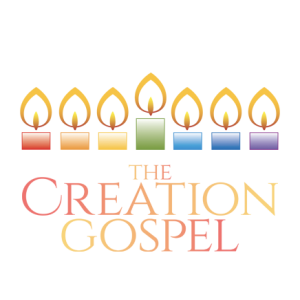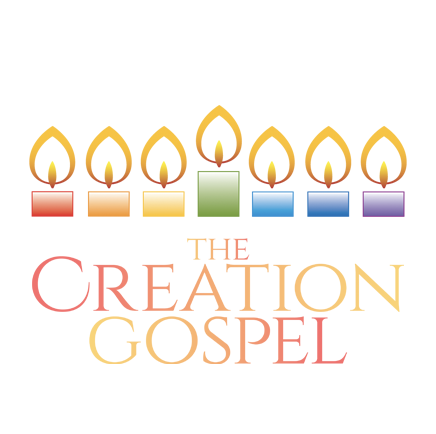Episodes

Sunday Jun 01, 2025
Sunday Jun 01, 2025
|
|

Sunday May 25, 2025
Sunday May 25, 2025
|
|

Sunday May 11, 2025
Sunday May 11, 2025
|

Sunday May 04, 2025
Sunday May 04, 2025
|
|

Monday Apr 28, 2025
Monday Apr 28, 2025
|
|

Monday Apr 07, 2025
Monday Apr 07, 2025
Walking on Water
More specifically, Chag HaMatzah, or the Feast of Unleavened Bread.
Before I explain that, let's begin with a not-rhetorical two-part question:
Why did Yeshua walk on water? Why did the wind scare Peter?
Last week's newsletter established the underpinnings of the WOW season (Walking on Water). Review:
•The last watch of the night is a last opportunity to flee false security. It is the last opportunity to flee the people whose wicked agenda vexes the righteous Holy Spirit within. If one waits until the morning's dawn to flee, he flees with nothing. Only the deeds of the righteous can follow them into the eternal Kingdom of Messiah, for those are the only eternally true and fit deeds.
•The overturn of the cities of Sodom likely took place at Passover, for Lot baked unleavened bread for the angel of wrath.
The Wrath of the Lamb struck the cities of Sodom right at dawn, when Lot and his daughters reached safety and the last watch of the night becomes the past. Likewise, at dawn, after the strong East Wind completed its work of arranging the waters, the Israelites traveled through the waters to reach safety.
The Israelites still had the flesh of the Passover lamb, bitter herbs, and matzah in their bellies. Having obeyed YHVH's instructions, they were protected from the Wrath of the Lamb on Egypt and Pharaoh. All they had to do was Walk on Water, to escape to freedom. WOW!
So back to our question: why did Yeshua walk on water?
The Hebrew text of Exodus 14:21 gives the plainest of answers:
וַיֵּט מֹשֶׁה אֶת־יָדוֹ עַל־הַיָּם וַיּוֹלֶךְ יְהוָה אֶת־הַיָּם בְּרוּחַ קָדִים עַזָּה כָּל־הַלַּיְלָה וַיָּשֶׂם אֶת־הַיָּם לֶחָרָבָה וַיִּבָּקְעוּ הַמָּיִם
•"Then Moses stretched out his hand over the sea; and the LORD swept the sea back by a strong east wind all night and turned the sea into dry land, so the waters were divided."
The text reminds us of the First Mention of the waters’ division. Genesis 1:6-12 describe the first two occasions of the divided waters. First, the upper and lower waters were divided on the Second Day of Creation. Next, the waters were gathered into “one place,” and the dry land appeared, which then bore fruit trees (more on that next time!). The Hebrew explains the waters below the heavens gathered to “a unified, one place.” The ordinal number one in Hebrew is achat, but echad suggests unity, solidarity: אֶל־מָקוֹם אֶחָד. So think of the pattern: first, upper and lower waters were separated, the water unified, dry land appeared, and then:
•"The sons of Israel went through the midst of the sea on the dry land, and the waters were like a wall to them on their right hand and on their left." (Ex 14:22)
If we read Exodus according to the Creation pattern, we see more than just the walls of water to the right and left. First, upper and lower waters separated, lower waters unified, dry land appeared, AND then the waters to right and left congealed to some degree of solid matter and became like walls.
There was something about the water under the Israelites’ feet that had the appearance and substance of dry land…even though it was water! Just as the clouds above, below, to the right and left accompanied them on the wilderness journey…so the waters of the Reed Sea formed a protective type of tunnel for the Israelites.
Does this seem too fantastic? Let’s check the Hebrew text of Exodus 14:21 to see if perhaps Yeshua’s WOW bears out the Jewish way of reading the crossing of the Reed Sea. If you don’t read Hebrew, then you can verify the following by using your concordance.
וַיֵּט מֹשֶׁה אֶת־יָדוֹ עַל־הַיָּם וַיּוֹלֶךְ יְהוָה אֶת־הַיָּם
The English translation says this: “Then Moses stretched out his hand over the sea; and the LORD swept the sea back…”
But let’s read the literal words:
“And stretched Moshe his hand over the sea and will walk YHVH the sea…”
For modern English grammar purposes, let’s read: “and YHVH will walk the sea.”
Walking on water, echad! “Shma, Yisrael, YHVH Eloheinu, YHVH Echad!”
Now we understand why Peter thought he could walk on water with Yeshua.
The Beshalach commentary on the crossing of the Reed Sea says, “Ten miracles occurred at the sea. First, that it split. Second is that it was made like a dome or a roof and Israel walked under the water. The water was under, on the sides of and over Israel. Third, it was dry under them, so that Israel should not smear their feet with mud…That is why the water was under them, like a bridge, so that they could easily walk on it.” (Tze'enah Ure'enah, Beshalach)
Peter has heard of these miracles. He wonders, are they true? Is Yeshua really the visible form of YHVH?
Twice per day Israel is commanded to recite the Shema, the declaration of the unity (echad) of YHVH: Shema, Yisrael, YHVH Eloheinu, YHVH Echad. The latest that one may recite the evening Shema is the last night watch, just before dawn; therefore, the sages encouraged everyone to say the Shema at the latest before midnight to ensure that nothing would hinder the proclamation of faith and lest the person find that the day had dawned before they could correct the oversight. This ensured that one was ready to be saved should the wrath come with the dawn as it did with Lot.
Yeshua reiterates this principle to his disciples, affirming the apocalyptic connotation of the Shema:
•“Blessed are those slaves whom the master will find on the alert when he comes; truly I say to you, that he will prepare himself to serve, and have them recline at the table, and he will come up and serve them. Whether he comes in the second watch, or even in the third, and finds them so, blessed are those slaves. But be sure of this, that if the head of the house had known at what hour the thief was coming, he would not have allowed his house to be broken into. You too, be ready; because the Son of Man is coming at an hour that you do not think He will.” (Lk 12:37-40)
Reclining at the table is how one eats the Passover in the first watch of the night. At his Passover with his disciples, Yeshua served them as he hinted in Luke 12:37-40, even washing their feet, yet Yeshua also prayed far into the night, preparing himself for the wrath that was about to be poured out on him for all mankind.
When he returns, the Lamb will in turn pour out his wrath on mankind who refuse to acknowledge their Elohim, their Creator and Savior. Yeshua mentions the second and third watches of the night as potential watches of his return. Also think of the “about midnight” repetition in the haggadah of the Pesach seder night. Finish the meal before midnight; don’t wait until morning to consume it all. Make sure the Lamb is completely inside you, nourishing you, when he returns. Once the morning breaks, it is too late.
Yeshua says “even the Third Watch,” which suggests he is giving stragglers time to recite the Shema, or prepare for resurrection, by affirming the commandments. It’s not ideal, though. Ideally, the Passover Lamb is eaten before midnight and the Shema is declared also. The daylight is the conclusion of the “night” (exile) with the morning Shema. The Morning Star is the marker for this time, but it can be obscured by clouds. It is sounds that are emphasized, not sights; therefore, “Shema,” or “hear.”
•But the boat was already a long distance from the land, battered by the waves; for the wind was contrary. And in the fourth watch of the night He came to them, walking on the sea. When the disciples saw Him walking on the sea, they were terrified, and said, “It is a ghost!” And they cried out in fear. But immediately Jesus spoke to them, saying, “Take courage, it is I; do not be afraid.” •Peter said to Him, “Lord, if it is You, command me to come to You on the water.” And He said, “Come!” And Peter got out of the boat and walked on the water and came toward Jesus. But seeing the wind, he became frightened, and beginning to sink, he cried out, “Lord, save me!” Immediately Jesus stretched out His hand and took hold of him, and said to him, “You of little faith, why did you doubt?” When they got into the boat, the wind stopped. And those who were in the boat worshiped Him, saying, “You are certainly God’s Son!” (Mt 14:24-33)
Yeshua said to Peter, "Come!" In Hebrew, he said, "Bo!" That should sound familiar from our Reed Sea salvation as well:
The sons of Israel went through the midst of the sea on the dry land, וַיָּבֹאוּ בְנֵי־יִשְׂרָאֵל בְּתוֹךְ הַיָּם בַּיַּבָּשָׁה
The verb? Yavo-u! The collective congregation in plural form. Without explaining how verb tenses are a little different between Biblical and Modern Hebrew, you can even see wordplay that sounds as if it is future tense as well. Peter knew YHVH walking on water had happened in the past...if Yeshua was who he said he was, the son of YHVH, then wouldn't he want the disciples to Bo! now as well?
WOW! WOW! WOW!
Our second question is, “Why was Peter afraid of the wind?” Hadn’t the wind been blowing just as fearfully up until then? That gives us another question to answer in the next newsletter!
May we all view the coming Wrath of the Lamb like the Israelites.
From above the lower waters, on the other side of the sea...with the salvation of the Passover Lamb inside.
Please SUBSCRIBE to our newsletter to get new teachings. |

Sunday Mar 30, 2025
Sunday Mar 30, 2025
|

Sunday Mar 23, 2025
Sunday Mar 23, 2025
|

Sunday Mar 16, 2025
Sunday Mar 16, 2025
|

Monday Mar 10, 2025
Monday Mar 10, 2025
Jackals and Ostriches
You’ve jumped into the last of a series that began with The Gift Horse, Watch the Smoke, Wetter than Water, The Treehouse: Sketches of the Millennial Kingdom and Hamas: The Violence of the Mind. Click on the links to start at the beginning.
“Behold, I will do something new, now it will spring forth; will you not be aware of it?
I will even make a roadway [derek] in the wilderness [midbar], rivers in the desert. The beasts of the field will glorify Me, the jackals and the ostriches, because I have given waters in the wilderness [midbar] and rivers in the desert, to give drink to My chosen people.” (Is 43:19–20)
Please SUBSCRIBE to our newsletter to get new teachings.

